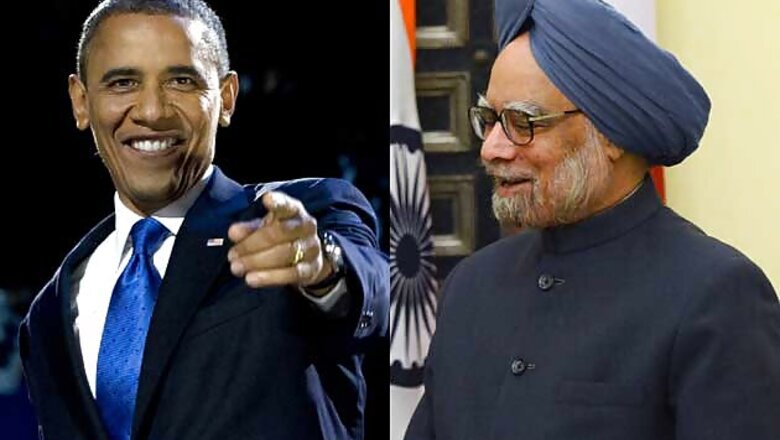
views
New Delhi: US President Barack Obama's re-election and his victory speech were greeted with a thunderous roar not only by the Americans but even in India. Obama, a master orator with expressive facial mannerism, not only spoke about the hard-fought election campaign but also explained his roadmap to take the US out of the financial crisis and ensure that the country remains at the forefront of technology.
The President of the world's largest economy made sure that he touched upon every major crisis facing his country, whether it was the economy, unemployment or the war in Afghanistan during his impassioned speech. Asking his countrymen to forget the differences between Democrats and Republicans, he exhorted them to unite and ensure that America kept on marching ahead.
His speech, televised live all over the world, was a perfect example of how to get the country behind oneself in pursuit of a common goal. Not only the real world, but even the virtual world of Facebook and Twitter reverberated with eulogies of Obama and his superlative speech.
Now let's travel to the east to India where the country's leaders are accused of playing to the gallery, skipping important issues, pitting castes and communities against each other and of not having a national outlook while making a speech. In the last few years, as Indian polity has fragmented and become more localised, some of these charges indeed seem to be true.
Several of our leaders are known to take pot shots at their opponents without caring for the kind of language used although this is not an Indian feature and politicians all over the world including America are known to indulge in such mudslinging. But what is striking in the speeches delivered by Indian leaders is that they focus mostly on emotive issues. While some references may be made to the Herculean problems facing the country, most of the speech is made keeping in mind the listeners' profile. While India is not short of leaders whose oratory can spellbound the crowd, even they are mostly known to skip the bigger picture.
Moreover, Indian Prime Minister Manmohan Singh, although not a professional politician, delivers speeches with a monotonous and robotic expression unlike Obama, who uses the body language as well as voice modulation perfectly to charge up his listeners. His bureaucratic background is perhaps responsible for his fixed gaze and the lack of body language while delivering a speech. One of the most striking difference between the speeches of the two countries is that while Obama’s family is a constant feature and a show os affection is almost mandatory, Manmohan or for that matter the Indian leaders in general refrain from making any reference to their relatives
But is a speech only about how it is delivered or is more about the content? A close scrutiny of Obama's Tuesday nigh speech and Manmohan's August 15 one shows that while the tone and tenor of delivering them may be as far apart as the two countries, the content is almost the same.
Both leaders have talked about the burning issues facing their respective countries and how their respective governments plan to tackle them. Fiscal deficit, technological excellence, price rise, unemployment have figured in the speeches of both Obama and Manmohan. While Obama's speech was quoted by the twitterati and got record number of retweets, a overwhelming majority of which were positive, Manmohan is regularly panned by the Internet users for being too drab and for speaking too less. The US President's style of delivering a speech can certainly enthuse the crowd whereas Manmohan's style would remind many of a boring college lecture where it was too difficult to stay awake.
Even though the content of the two speeches may be meaty, oratory skills are equally important and here Manmohan and other Indian leaders have a lot to learn from Obama.
Below is the text of Barack Obama's victory speech:
US President Barack Obama's speech in Chicago after his re-election on Tuesday night, as transcribed by Roll Call:
Thank you so much.
Tonight, more than 200 years after a former colony won the right to determine its own destiny, the task of perfecting our union moves forward.
It moves forward because of you. It moves forward because you reaffirmed the spirit that has triumphed over war and depression, the spirit that has lifted this country from the depths of despair to the great heights of hope, the belief that while each of us will pursue our own individual dreams, we are an American family and we rise or fall together as one nation and as one people.
Tonight, in this election, you, the American people, reminded us that while our road has been hard, while our journey has been long, we have picked ourselves up, we have fought our way back, and we know in our hearts that for the United States of America the best is yet to come.
I want to thank every American who participated in this election, whether you voted for the very first time or waited in line for a very long time. By the way, we have to fix that. Whether you pounded the pavement or picked up the phone, whether you held an Obama sign or a Romney sign, you made your voice heard and you made a difference.
I just spoke with Gov. Romney and I congratulated him and Paul Ryan on a hard-fought campaign. We may have battled fiercely, but it's only because we love this country deeply and we care so strongly about its future. From George to Lenore to their son Mitt, the Romney family has chosen to give back to America through public service and that is the legacy that we honor and applaud tonight. In the weeks ahead, I also look forward to sitting down with Gov. Romney to talk about where we can work together to move this country forward.
I want to thank my friend and partner of the last four years, America's happy warrior, the best vice president anybody could ever hope for, Joe Biden.
And I wouldn't be the man I am today without the woman who agreed to marry me 20 years ago. Let me say this publicly: Michelle, I have never loved you more. I have never been prouder to watch the rest of America fall in love with you, too, as our nation's first lady. Sasha and Malia, before our very eyes you're growing up to become two strong, smart beautiful young women, just like your mom. And I'm so proud of you guys. But I will say that for now one dog's probably enough.
To the best campaign team and volunteers in the history of politics. The best. The best ever. Some of you were new this time around, and some of you have been at my side since the very beginning. But all of you are family. No matter what you do or where you go from here, you will carry the memory of the history we made together and you will have the lifelong appreciation of a grateful president. Thank you for believing all the way, through every hill, through every valley. You lifted me up the whole way and I will always be grateful for everything that you've done and all the incredible work that you put in.
I know that political campaigns can sometimes seem small, even silly. And that provides plenty of fodder for the cynics that tell us that politics is nothing more than a contest of egos or the domain of special interests. But if you ever get the chance to talk to folks who turned out at our rallies and crowded along a rope line in a high school gym, or saw folks working late in a campaign office in some tiny county far away from home, you'll discover something else.
You'll hear the determination in the voice of a young field organizer who's working his way through college and wants to make sure every child has that same opportunity. You'll hear the pride in the voice of a volunteer who's going door to door because her brother was finally hired when the local auto plant added another shift. You'll hear the deep patriotism in the voice of a military spouse who's working the phones late at night to make sure that no one who fights for this country ever has to fight for a job or a roof over their head when they come home.
That's why we do this. That's what politics can be. That's why elections matter. It's not small, it's big. It's important. Democracy in a nation of 300 million can be noisy and messy and complicated. We have our own opinions. Each of us has deeply held beliefs. And when we go through tough times, when we make big decisions as a country, it necessarily stirs passions, stirs up controversy.
That won't change after tonight, and it shouldn't. These arguments we have are a mark of our liberty. We can never forget that as we speak people in distant nations are risking their lives right now just for a chance to argue about the issues that matter, the chance to cast their ballots like we did today.
But despite all our differences, most of us share certain hopes for America's future. We want our kids to grow up in a country where they have access to the best schools and the best teachers. A country that lives up to its legacy as the global leader in technology and discovery and innovation, with all the good jobs and new businesses that follow.
We want our children to live in an America that isn't burdened by debt, that isn't weakened by inequality, that isn't threatened by the destructive power of a warming planet. We want to pass on a country that's safe and respected and admired around the world, a nation that is defended by the strongest military on earth and the best troops this - this world has ever known. But also a country that moves with confidence beyond this time of war, to shape a peace that is built on the promise of freedom and dignity for every human being.
We believe in a generous America, in a compassionate America, in a tolerant America, open to the dreams of an immigrant's daughter who studies in our schools and pledges to our flag. To the young boy on the south side of Chicago who sees a life beyond the nearest street corner. To the furniture worker's child in North Carolina who wants to become a doctor or a scientist, an engineer or an entrepreneur, a diplomat or even a president - that's the future we hope for. That's the vision we share. That's where we need to go - forward. That's where we need to go.
Now, we will disagree, sometimes fiercely, about how to get there. As it has for more than two centuries, progress will come in fits and starts. It's not always a straight line. It's not always a smooth path. By itself, the recognition that we have common hopes and dreams won't end all the gridlock or solve all our problems or substitute for the painstaking work of building consensus and making the difficult compromises needed to move this country forward. But that common bond is where we must begin.
Our economy is recovering. A decade of war is ending. A long campaign is now over. And whether I earned your vote or not, I have listened to you, I have learned from you, and you've made me a better president. And with your stories and your struggles, I return to the White House more determined and more inspired than ever about the work there is to do and the future that lies ahead.
Tonight you voted for action, not politics as usual. You elected us to focus on your jobs, not ours. And in the coming weeks and months, I am looking forward to reaching out and working with leaders of both parties to meet the challenges we can only solve together. Reducing our deficit. Reforming our tax code. Fixing our immigration system. Freeing ourselves from foreign oil. We've got more work to do.
But that doesn't mean your work is done. The role of citizen in our democracy does not end with your vote. America's never been about what can be done for us. It's about what can be done by us together through the hard and frustrating, but necessary work of self-government. That's the principle we were founded on.
This country has more wealth than any nation, but that's not what makes us rich. We have the most powerful military in history, but that's not what makes us strong. Our university, our culture are all the envy of the world, but that's not what keeps the world coming to our shores.
What makes America exceptional are the bonds that hold together the most diverse nation on earth. The belief that our destiny is shared; that this country only works when we accept certain obligations to one another and to future generations. The freedom which so many Americans have fought for and died for come with responsibilities as well as rights. And among those are love and charity and duty and patriotism. That's what makes America great.
I am hopeful tonight because I've seen the spirit at work in America. I've seen it in the family business whose owners would rather cut their own pay than lay off their neighbors, and in the workers who would rather cut back their hours than see a friend lose a job. I've seen it in the soldiers who reenlist after losing a limb and in those SEALs who charged up the stairs into darkness and danger because they knew there was a buddy behind them watching their back.
I've seen it on the shores of New Jersey and New York, where leaders from every party and level of government have swept aside their differences to help a community rebuild from the wreckage of a terrible storm. And I saw just the other day, in Mentor, Ohio, where a father told the story of his 8-year-old daughter, whose long battle with leukemia nearly cost their family everything had it not been for health care reform passing just a few months before the insurance company was about to stop paying for her care.
I had an opportunity to not just talk to the father, but meet this incredible daughter of his. And when he spoke to the crowd listening to that father's story, every parent in that room had tears in their eyes, because we knew that little girl could be our own. And I know that every American wants her future to be just as bright. That's who we are. That's the country I'm so proud to lead as your president.
And tonight, despite all the hardship we've been through, despite all the frustrations of Washington, I've never been more hopeful about our future. I have never been more hopeful about America. And I ask you to sustain that hope. I'm not talking about blind optimism, the kind of hope that just ignores the enormity of the tasks ahead or the roadblocks that stand in our path. I'm not talking about the wishful idealism that allows us to just sit on the sidelines or shirk from a fight.
I have always believed that hope is that stubborn thing inside us that insists, despite all the evidence to the contrary, that something better awaits us so long as we have the courage to keep reaching, to keep working, to keep fighting.
America, I believe we can build on the progress we've made and continue to fight for new jobs and new opportunity and new security for the middle class. I believe we can keep the promise of our founders, the idea that if you're willing to work hard, it doesn't matter who you are or where you come from or what you look like or where you love. It doesn't matter whether you're black or white or Hispanic or Asian or Native American or young or old or rich or poor, able, disabled, gay or straight, you can make it here in America if you're willing to try.
I believe we can seize this future together because we are not as divided as our politics suggests. We're not as cynical as the pundits believe. We are greater than the sum of our individual ambitions, and we remain more than a collection of red states and blue states. We are and forever will be the United States of America.
And together with your help and God's grace we will continue our journey forward and remind the world just why it is that we live in the greatest nation on Earth.
Thank you, America. God bless you. God bless the United States.
Full text of PM's Independence Day Speech, 2012:
My dear countrymen, brothers, sisters and dear children,
I greet you all on this anniversary of our Independence.
“The leaders of our freedom movement, under the stewardship of Mahatma Gandhi, had dreamt of an independent and prosperous India. On this day in 1947, Pandit Jawaharlal Nehru took the first step towards the realization of that dream by hoisting the Tricolour at the Red Fort. The journey we began on 15 August, 1947 is now 65 years old. We have achieved much in these 65 years.
Today is certainly a day to celebrate the success of our democracy. However, on this occasion we should also introspect about what remains to be done. We would achieve independence in the true sense only when we are able to banish poverty, illiteracy, hunger and backwardness from our country. This would be possible only when we learn from our failures and build on our successes.
You are aware that these days the global economy is passing through a difficult phase. The pace of economic growth has come down in all countries of the world. Seen together, the European countries are estimated to grow at 0 percent this year. Our country has also been affected by these adverse external conditions. Also, there have been domestic developments which are hindering our economic growth. Last year our GDP grew by 6.5 percent. This year we hope to do a little better.
We cannot do much about the conditions that prevail outside our country. But we must make every effort to resolve the problems inside our country so that our economic growth and the creation of employment opportunities in the country are again speeded up.
While doing this, we must also control inflation. This would pose some difficulty because of a bad monsoon this year. However, we have taken many measures to deal with the situation. In districts where there has been a deficit of 50 percent or more in the rainfall, diesel subsidy is being provided to farmers by the Government. Seed subsidy has been enhanced. Funds available under the Central scheme for fodder have been increased. Our effort is to ensure that people do not face difficulty due to shortage of seeds, fodder or water in any part of the country. It is good that we have a big stock of foodgrains because of the hard work of our farmer brothers and sisters, and availability of foodgrains is not a problem for us.
As far as creating an environment within the country for rapid economic growth is concerned, I believe that we are not being able to achieve this because of a lack of political consensus on many issues. Time has now come to view the issues which affect our development processes as matters of national security.
If we do not increase the pace of the country’s economic growth, take steps to encourage new investment in the economy, improve the management of Government finances and work for the livelihood security of the common man and energy security of the country, then it most certainly affects our national security.
I promise to you today that our Government will work hard for India’s rapid economic growth and for shielding the country from the effects of the global economic slowdown. I promise that we will work hard for creation of new employment opportunities for our young men and women living in villages and cities. We will make every possible effort to secure the livelihood of our poor brothers and sister, our workers and our farmers. We will leave no stone unturned to encourage investment in our country so that our entrepreneurs can make a substantial contribution to our economy.
I believe that this period of difficulties will not last long. Even as we face these problems, we should be encouraged by the fact that we have achieved extraordinary successes in many areas in the last 8 years. We now need to replicate these successes in newer areas.
It has been our endeavour in the last 8 years to empower our citizens socially and economically so that they can contribute to the sacred task of nation building. Today, one out of every 5 households in the country has become eligible to benefit from the Mahatma Gandhi Rural Employment Act through a job card. In only the last one year we have provided employment to more than 8 crore people under this scheme.
When the UPA Government came to power in 2004, we had promised that we would provide electricity to all villages. To fulfill this promise, we launched the Rajiv Gandhi Rural Electrification Scheme. More than 1 lakh new villages have been provided with electricity connections under this scheme and now almost all the villages in the country have been electrified. Our next target is to provide electricity to each and every household in our country in the next 5 years and to also improve the supply of electricity.
No praise is high enough for our hard working farmers. They have produced a record output of crops successively in the last 2 years. Because of our Government's efforts for development of agriculture and for protecting the interests of farmers, agriculture has grown at an average rate of 3.3 per cent in the 11th Plan which is substantially higher than the 2.4 per cent we achieved in the 10th Plan. In the last 8 years, we have doubled the support prices of crops. We are providing loans at low interest rates to lakhs of farmers.
Our children are the biggest strength of our country. If our children are provided with good education and are healthy, then our future would be bright.
This is the reason why we have paid special attention to the needs of children in our policies and programmes. The education of children has been made mandatory by law. In the year 2006-07, only 93 per cent of children in the age group 6-14 years were getting admission in schools. Today almost all children in this age group are being admitted to schools. More than 51,000 new schools have been opened in the country and about 7 lakh teachers appointed in them in just the last 2 years. Now we will focus on improving the quality of education. In the next few months we will put in place a system of continuous assessment of the benefit our children are getting from teaching. Participation of the community and parents would be ensured so that they can be satisfied with the quality of teaching.
The Mid-day-meal Scheme provides nutritious meals in schools for about 12 crore children everyday. This is the biggest scheme of its kind in the world.
In the last one and half years no new case of polio has come to light and now India does not figure in the list of countries affected by this disease.
Malnutrition in children is a big challenge for us. We have taken steps in many dimensions to deal with this problem. In the last 8 years, the number of mothers and children benefitting from the ICDS has doubled. The process of making the ICDS more effective is in its last stages and will be completed in the next 1 or 2 months.
We had launched the National Rural Health Mission in 2005 so that health services can be extended to each village in the country. Today this Mission is being implemented with the help of 10 lakh health personnel including 8.5 lakh Asha workers. After the success of the National Rural health Mission, we now want to expand the scope of health services in our towns also. The National Rural Health Mission will be converted into a National Health Mission which would cover all villages and towns in the country. We are also formulating a scheme for distribution of free medicines through Government hospitals and health centres.
We want to create many new job opportunities for our youth in the coming years. To achieve this it is necessary that we train them in skills which our economy needs. It is our endeavour to put in place a system in which training facilities are available in many new skills. We also wish to provide short duration training courses of 6 weeks to 6 months for our young brothers and sisters. The National Skill Development Council has formulated a major scheme for skill development in which 8 crore people will be trained in the next 5 years. This is an ambitious scheme which can be implemented only through a specialized agency of the Central Government. Therefore, we are considering the establishment of a National Skill Development Authority so that skill development programmes all over the country can be implemented in a coordinated manner. We would also need contribution from the private sector and non-Governmental organizations in this work.
Creation of new employment opportunities is possible only when we encourage industry and trade. For this we need to speedily improve our infrastructure. Recently we have taken new measures to accelerate infrastructure development. Ambitious targets have been fixed in roads, airports, railways, electricity generation and coal production. The Government will take steps to increase investment for infrastructure development with the help of the private sector. To attract foreign capital, we will have to create confidence at the international level that there are no barriers to investment in India.
Just 10 years back only 3 out of every 10 households in our villages were benefitting from banking services. Today more than half of the rural households get the benefit of bank accounts. It will be our endeavour to ensure that all households benefit from bank accounts in the next 2 years.
We want to create a system in which money from Government schemes - pension for old people, scholarship for students and wages for labourers - can be credited directly into people’s bank accounts. This would reduce inconvenience to the beneficiaries, make it easy for them to receive payment and increase transparency. For this work, we will take help from the Aadhar scheme under which about 20 crore people have been registered so far.
To provide housing for our poor brothers and sisters residing in urban areas of our country we will soon launch the Rajiv Housing Loan Scheme. Under this scheme, people belonging to the economically weaker sections would be given relief on interest for housing loans of less than Rs. 5 lakh.
This year we will present the Twelfth Five Year Plan for consideration of the National Development Council. The Plan would determine the future course of action on all important matters relating to the country's development. It would lay down measures for increasing our present rate of economic growth from 6.5 to 9 per cent in the last year of the Plan. The Plan would focus special attention on areas important from the point of view of reaching the fruits of development to each citizen of our country and specially to the weaker sections of our society. I have full confidence that the Centre and the States will act together to implement the Twelfth Plan in an effective manner.
The incidents of violence which occurred in Assam recently are very unfortunate. I know that these incidents have resulted in the disruption of the lives of a large number of people. We fully sympathize with those families which have been affected by the violence. We are doing everything possible to provide relief to them. I also promise to you that our Government will make every effort to understand the reasons behind the violence and work hard with the State Governments to ensure that such incidents are not repeated in any part of the country.
We have achieved success in many areas of internal security. In Jammu and Kashmir, people participated in large numbers in the Panchayat elections. There has been a reduction in violence in the North Eastern States and we are engaged in dialogue with many groups there so that they can join the mainstream of development. We have initiated new schemes of development in areas affected by naxal violence to ensure that the grievances of the people residing there, especially our brothers and sisters belonging to Scheduled Tribes, can be removed and their lot can be improved. However, we need to be constantly vigilant as far as internal security is concerned. Communal harmony has to be maintained at all costs. Naxalism is still a serious problem. The incidents which occurred in Pune in the beginning of this month point to the need for much more work to be done in the area of national security. We will continue to do this work with sincerity in the future also.
I would like to congratulate our scientists and technologists who have enhanced our prestige by successfully testing the Agni V Missile and launching the RISAT- I Satellite in space this year. Recently the Cabinet has approved the Mars Orbiter Mission. Under this Mission, our spaceship will go near Mars and collect important scientific information. This spaceship to Mars will be a huge step for us in the area of science and technology.
We have seen a lot of discussion in the recent months about the role of our armed forces and their preparedness. I would like to emphasise here that our armed forces and paramilitary forces have defended the security of our country both during war and peace with valour and honour. Our soldiers have made the biggest of sacrifices, whenever needed. Today I would like to reassure our countrymen that our armed forces and paramilitary forces are prepared to face any challenge. The Government will continue to work for modernizing these forces and providing them with the necessary technology and equipment. Today, I would like to thank our security forces, who are guarding our frontiers bravely, from the bottom of my heart. We will continue to make efforts for their welfare.
Our Government has set up a committee to examine issues relating to pay and pension of armed forces personnel. This committee will also look into matters concerning pension of retired men and officers and family pension being paid to their families. We will take prompt action on the recommendations of the committee, once they are received.
Our Government has paid special attention to the welfare of Scheduled Castes, Scheduled Tribes, minorities, women and other weaker sections. The special needs of our tribal and backward districts are being met through programmes such as the Integrated Action Plan, Backward Regions Grant Fund and Tribal Sub Plan. Through the Forest Rights Act, we have given proprietary rights to lakhs of our brothers and sisters belonging to Scheduled Tribes on land on which they have been living for generations. We are formulating a scheme to ensure that people belonging to Scheduled Tribes can get fair and remunerative prices for the forest produce they collect. The Government wants to speedily convert the Mines and Minerals (Development and Regulation) Bill into a legislation. Through this law we want to provide funds for the benefit of our tribal brothers and sisters in the mining areas.
We will make the 15 points programme for minorities more effective. The Multi-Sectoral Development Programme being implemented in districts with large minority populations will be expanded.
We have enhanced the amount of post-matric scholarship available to children belonging to Scheduled Castes, Scheduled Tribes, Other Backward Classes and minorities. Our efforts to make these scholarship schemes more effective will continue.We are considering a new and effective law to put an end to the repulsive practice of manual scavenging and to provide opportunities to those engaged in this practice to begin their lives afresh.
Our commitment to make the work of the Government and administration transparent and accountable stands. On the last Independence Day, I promised you that we would take many steps for this purpose. I am happy to state that during the last 1 year we have achieved good progress in this area. The Lok Sabha has cleared the Lokpal and Lokayukta Bill. We hope that all political parties will help us in passing this Bill in the Rajya Sabha. A number of other Bills have also been presented before the Parliament. The Cabinet has cleared a Public Procurement Bill. We will continue our efforts to bring more transparency and accountability in the work of public servants and to reduce corruption. But we will also take care that these measures do not result in a situation in which the morale of public functionaries taking decisions in public interest gets affected because of baseless allegations and unnecessary litigation.
In my first message to the country after assuming the office of Prime Minister I had appealed to you to contribute to the sacred work of nation building. I am very happy that today more of our citizens than ever before, and specially the youth, are taking interest in issues related to the progress of our society and country. Our Government believes that the difficult problems which India faces can be resolved only with the cooperation of the common man. It will be our endeavour that in the coming time, still more people help us in tasks like removal of poverty, illiteracy and inequality.
I believe that no power in the world can stop our country from achieving new heights of progress and development. What is needed is that we work together as one people for the success of our country. Let us once more resolve that we will continue to work for a progressive, modern and prosperous India.”
Dear children join me in saying
Jai Hind,
Jai Hind,
Jai Hind.











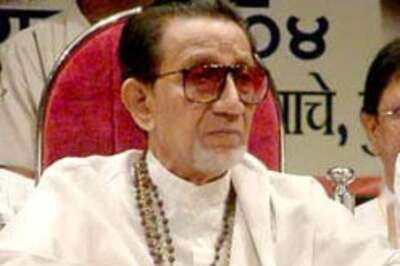
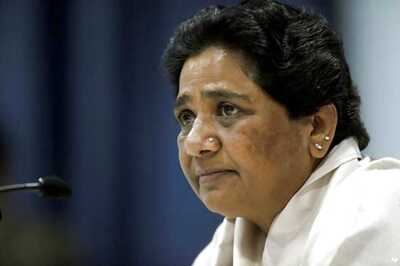
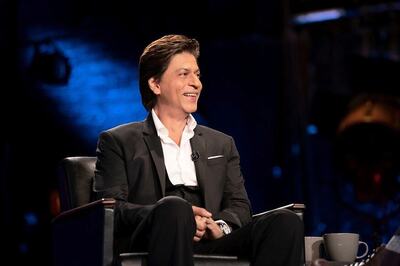

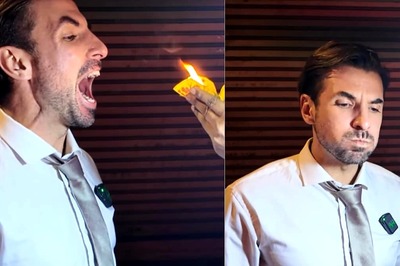
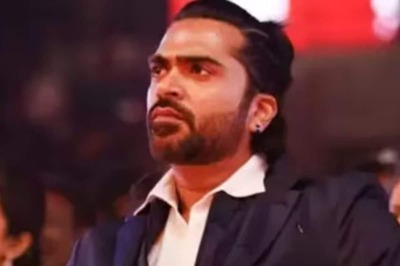
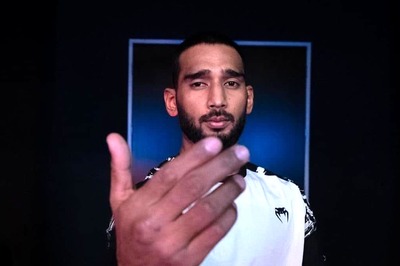
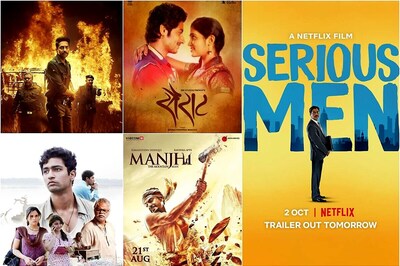

Comments
0 comment